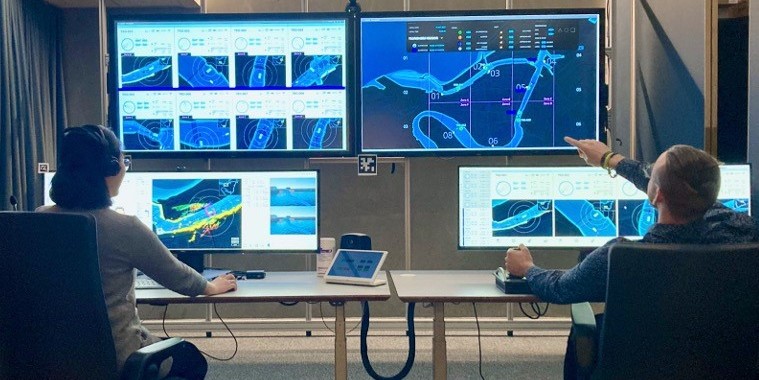Human Factors and Design of Control Rooms - Courses - Continuing Education
Human Factors and Design of Control Rooms

Learn how to design safe, user-friendly and efficient remote operation centers for autonomous and remotely controlled systems. Photo: Jooyoung Park, Shore Control Lab, NTNU
Start date:
05.02.2026
Application deadline:
10.01.2026
Study form:
Course with on-site lectures
Location:
Trondheim
Tuition fees:
24000 Kr
Credits:
7,5
Course code:
PD6017
The course is closed for applications. You can see all our available courses on our website.
How can we design safe, user-friendly and efficient remote operation centers for autonomous and remotely controlled systems?
This course gives you insight into human factors and human-centred design for safety-critical environments. You will learn to develop and evaluate user interfaces and control systems for maritime operations and other industries where remote control and automation are central. Through practical exercises and project work you will gain experience in applying theory to real design challenges.
If you do not have a Norwegian social security number, fill out this online form to apply for admission to continuing education.
If you have a Norwegian social security number, you can apply by clicking the "apply now" button.
The Course can be a part of NTNUs masterprogram i teknologiledelse og digital transformasjon, in the specialization Strategisk design og tjenesteutvikling or in another Study Program on NTNU where it fits in..
The course is intended for professionals who work with the design of user interfaces, control rooms, or safety in technological systems within the maritime sector, oil and gas, energy, or other industries that use remotely operated or autonomous systems.
The course provides a holistic understanding of how human factors influence the design and operation of remote operation centers for autonomous systems. Participants will learn how design choices can affect safety, situational awareness and efficiency in such systems. Based on both theory and practice, students will develop skills in analyzing, prototyping and evaluating user interfaces and control systems. Through seminars, group exercises and project work, the participants will work with real-world challenges from the maritime sector and other relevant industries. The teaching is conducted in English.
You will learn about:
- Principles of human factors and ergonomics in safety-critical operations
- Human-centred design for remote control and autonomous systems
- Design standards and guidelines for safety-critical work environments
- Identification and reduction of design-related errors and risks
- Integration of human factors in ship bridges, control rooms and remote operation centers
- Prototyping and evaluation of user interfaces for autonomous operations
- Workload, situational awareness and user needs in highly automated systems
The admission requirement is twofold:
1. A completed degree of 180 ECTS credits.
2. A minimum of two years of relevant work experience.
You must document your employment with a certificate from your employer describing the type of job and work tasks, percentage of position and duration.
If you do not hold a bachelor’s degree or equivalent completed education of at least 180 ECTS credits, you may request an assessment of your prior learning and work experience.
You must document education and work experience within the application deadline for your application to be processed.
• Read more about documentation of admission requirements
• Read more about admission and ranking of applicants
Recommended prerequisites
Design expertise is not required to take the course, but participants are recommended to have a basic understanding of maritime operations, safety, design or engineering principles. Experience from relevant industries will be an advantage.
Tuition time and place
Module-based teaching with lectures, discussions and practical exercises in spring 2026.
On-campus, compulsory sessions at NTNU in Trondheim:
- First session: 5 February 09:00-16:00 and 6 February 09:00-15:00
- Second session: 19 March 09:00-16:00 and 20 March 09:00-15:00
- Third session: 24 April 09:00-15:00
In addition, there will be opportunities for digital Q&A and supervision between the sessions.
Exam information
Assessment based on a project report in which the participants document the design process, evaluation of prototypes, and reflections. The report constitutes 100% of the grade.
Course materials/literature
Selected articles on human factors, ergonomics and safety in autonomous systems. A detailed list of course material will be available at the start of the course.
“The course was interesting, and honestly, I didn't know what to expect at first. It was a good surprise, different from the courses we normally have.”
“The course allowed me to understand the importance of a good design, to make life on the ship easy and safe. That is something that they do not show us in the university (…), so I feel has helped me a lot to understand more about a good ship design.”
It was a very visual course, with a lot of pictures. The contents weren't too dense, and it was possible to follow. The exercises were interesting. The lecturers conveyed the content clearly, and the fact that there were guests was very good.“
